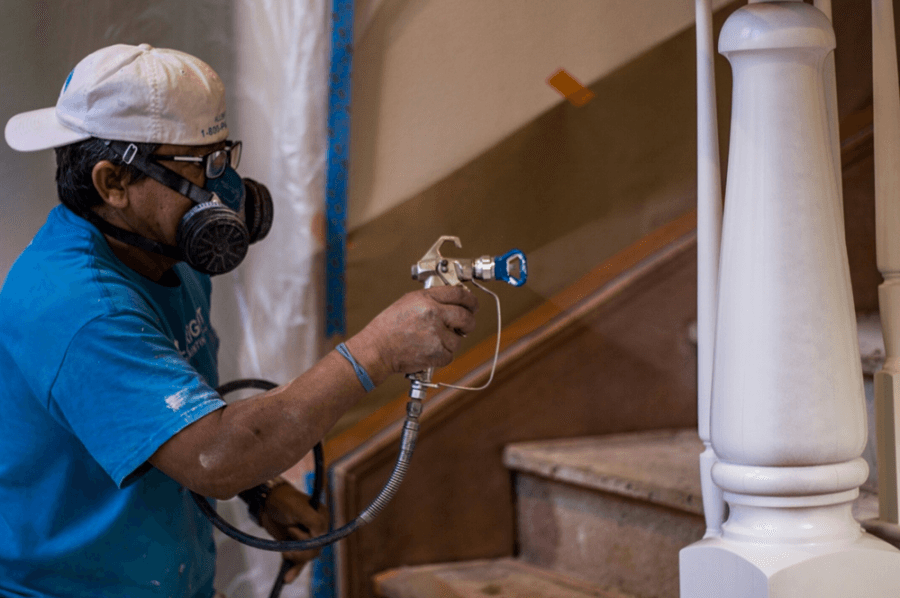
Taking a few moments to read the following few pages could save you both money and frustration by avoiding a bad contracting experience. The fact is, painters range in the quality of services they provide, and there are many inexperienced, unlicensed, and unqualified people and companies that masquerade as professional painters. Many homeowners are so focused on “how much” that they never even consider anything else. This can lead them to hire the wrong company.
Questions to Ask a Painter
Below are 10 questions to ask a painter before you hire them. They will help you quickly separate the professional painters from the ones you want to stay away from.
1. Do You Have Insurance?
2. Should I Be Concerned With Your Crew In My Home?
3. Are The Workers On My Project Employees Or Subcontractors?
4. What Kind Of Materials Do You Use?
5. As The Estimator, Are You Going To Be Personally Involved In My Job? If Not, How Will My Project Be Managed?
6. What Kind Of Training Do Your Employees Receive? How Often?
7. I’m Concerned About Safety. Do You Have A Written Safety Program Or Any On-Going Safety Training For Your Workers?
8. Is Your Company A Member Of The Better Business Bureau, A Local Chamber Of Commerce, Or Any Trade Associations?
9. Are References Included With Your Proposal? How Do You Put Together Your Reference List?
10. How Long Is Your Warranty, What Does It Cover, And How Is It Funded?
Feared Question #1 – “Do You Have Insurance?”
Painting contractors should possess two types of insurance:
- Comprehensive Business Liability, which protects your property from damage by the contractor. A million-dollar limit in liability coverage is probably the minimum any painting contractor should be carrying.
- Workmen’s Compensation, which protects the workers and you (from liability), while they are working on your property. Workmen’s compensation is very costly, so many painting contractors will try to work without it.
As a consumer, you should never consider working with a contractor that does not have these insurances in place. If you’re not sure about the validity of a contractor’s insurance, call the insurance carrier and confirm it is a current, active policy.
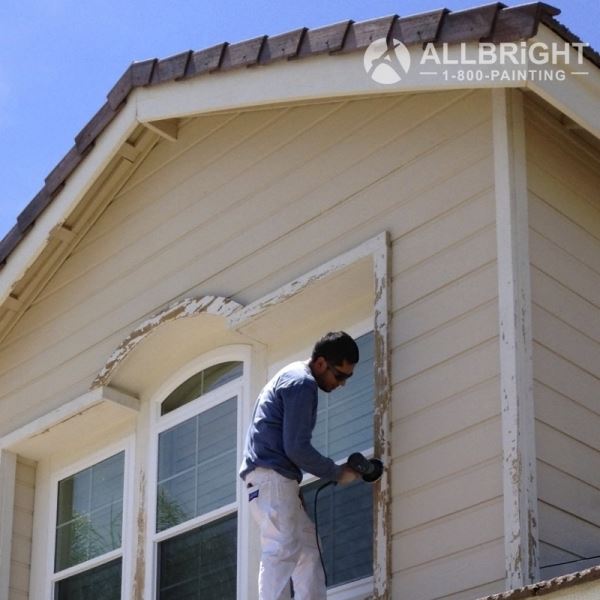
The Smoke and Mirror Tricks
You have a right to confirm a contractor’s insurance before you hire them. Contractors without insurance may pull the following tricks:
- Just tell you that they are insured, hoping you won’t pursue it further.
- Try to pass off their auto or health insurance as being “insured.”
- Changing the dates on an expired policy (contractor policies are for one-year terms)
Be especially careful of contractors without workmen’s compensation. It is expensive, and many contractors will attempt to trick customers into thinking they have it, or they don’t need it for some reason. Don’t be fooled.
Feared Question #2 – “Should I Be Concerned With Your Crew In My Home?”
This feared question gets to the heart of who will be performing work in your home and whether your home and belongings will be safe. Sadly, there have been numerous documented cases around the country where employees of a hired contractor have burglarized, injured, or even killed the homeowner. What’s worse, in most cases it was later found that the bad employee had a criminal background that was unknown to the employer. In learning about who will be performing the work in your home, you should ask additional questions about their hiring policy and whether they conduct criminal background checks.

The Smoke and Mirror Tricks
Contractors can tell you they have worked with everyone on their crew for the last 42 years, but how do you really know? Dig deeper to see if they can provide information to back up their claims:
- Ask for the name of the company that provides the background check services.
- Ask to see examples of the reports they provide.
If they can’t provide answers (or the answers sound suspicious), it’s best to avoid that contractor.
Feared Question #3 – “Are The Workers On My Project Employees Or Subcontractors?”
Many painting contractors will use subcontractors instead of hiring employees because it will lower their costs. Subcontractors are typically paid a flat fee, and the contractor also does not have to pay for social security taxes and employee benefits. However, you put yourself at risk when you hire a contractor who uses subcontractors:
- The contractor may be tempted to find subcontractors offering the lowest possible fee so they can make more money on the job. This can translate into low quality of work.
- Since the subcontractor gets a fixed fee and is not paid hourly, they may be tempted to cut corners to get the job done quicker.
- If the contractor uses subcontractors and not employees, it increases the probability that they do not have workers’ compensation insurance.
- The contractor may not know the people on the crew, which makes it likely that background checks have not been performed.
All of these scenarios can impact the quality of work you get as well as the safety of your home and belongings. For this reason, it is better to hire a painting contractor whose workers are true employees.

The Smoke and Mirror Tricks
The big trick is calling subcontracted guys “employees” and hoping homeowners will never find out the difference. To protect yourself you can ask further questions such as:
- Can I see a sample of an employee’s check stub?
- Who does payroll for your business?
Feared Question #4 – “What Kind Of Materials Do You Use?”
The quality of materials used on your project will impact how it looks and how long it lasts. There is a vast difference in quality among coatings like paints and stains. There are also many specialized coatings that should be used for specific applications. Differences in the costs of a $9 gallon of paint versus a $50 gallon of paint represent real differences in the ingredients, with higher-priced paint having more expensive ingredients that look better and last longer, such as resins, binders, and even titanium.
In addition to coatings, the quality of other materials matters too. For example, the quality of calk your contractor uses impacts its lifespan. The bottom line is that you should ask for details about the products that will be used on your project while also making sure that the contractor understands what they are using and why.
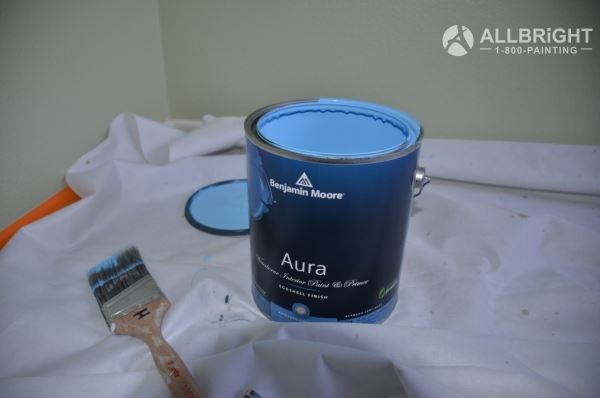
The Smoke and Mirror Tricks
The biggest trick is not to specify the types of material to be used on your job and use the cheapest materials available. This saves the contractor money while impacting the quality and lifespan of your paint project. Ask about the materials that will be used and make sure they are specified in writing.
Feared Question #5 – “As The Estimator, Are You Going To Be Personally Involved In My Job? If Not, How Will My Project Be Managed?”
Often times you will meet with the estimator or owner before the project begins, but they will not actually be performing the work. This is fairly common, and nothing is wrong with it, provided that the company has a system for managing your project.
Project management encompasses the planning, execution, and follow-up of the service you have purchased. It is important because it will help your project run smoothly and ensure that you get the results you are looking for. Good project management includes:
- A professional proposal that is detailed with specifications that list the services you have agreed to have performed and can guide the crew during their work.
- A specific system for executing each phase of the project (such as set up, preparation, surface protection, paint application, clean up, etc.)
- All changes to the project (additions or deletions) are communicated in writing and signed by both parties.
- A system for the crew to check and cross-check their work.
- An end-of-project walk-through where the project manager walks the job with the client to assure satisfaction.
Project management is important for contracted painting jobs because it helps with communication and lowers the chance of complaints. The fact is, contracting is the #1 source of consumer complaints in the state, and project management is what triggers most calls to the State Contractor’s License Board and the Better Business Bureau. With a proper project management system in place, these complaints can be avoided and your job will be completed the right way.
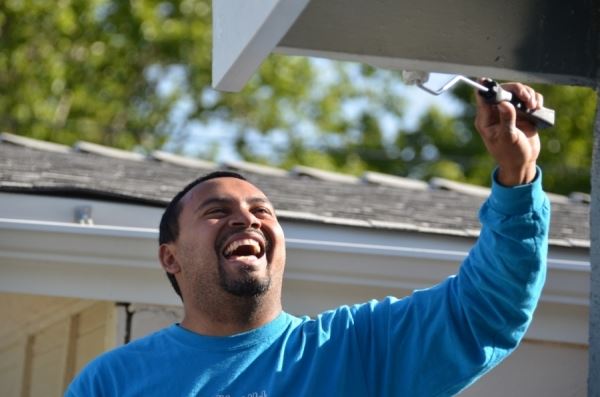
The Smoke and Mirror Tricks
This is an area where there are fewer tricks and more poor business practices. If the bid is low, you can be assured the painter’s pay is low; they have no benefits and not much incentive to do a great job. How can a project be professionally managed when there are no professionals working on the project?
Feared Question #6 – “What Kind Of Training Do Your Employees Receive? How Often?”
This is another reason why you should always hire contractors who have employees and not those who use subcontractors. If the company you hire uses only subs to paint, they have no control over the training those subs receive. However, even if you choose a contractor with employees, this does not guarantee that those employees receive training. The sad fact is that training just isn’t in the budget for most contractors.
However, training is very important in the painting industry:
- It reduces mistakes.
- It helps to assure a consistent, high-quality product.
- It allows projects to be completed in a timely manner.
- It reduces accidents and mishaps.
If a company has a formal training program, it’s a safe bet that they have their act together. They can do the training in-house through regular meetings with their employees. They can have field training systems in place, usually coordinated with classroom training sessions. They can also use trade associations, such as PDCA (Painting and Decorating Contractors of America) or paint manufacturer’s representatives to stay up to date with the latest materials and techniques.
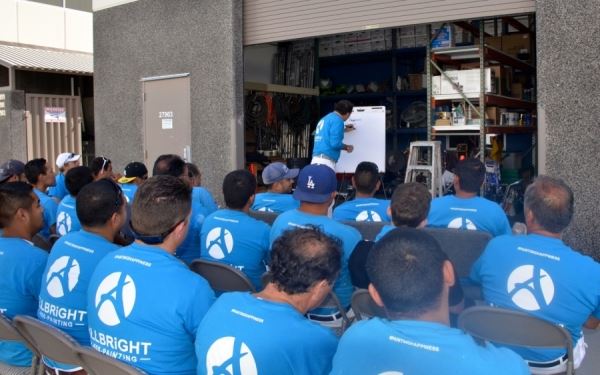
The Smoke and Mirror Tricks
Before hiring, find out if the company trains its employees. However, a contractor could say yes, and you’d never know the difference. They may also say “we train in the field” – does that mean that the painters will be learning and making mistakes on your job?
To be sure you have a clear picture of training, probe to get more information. Some questions you may ask include:
- May I see a written job description for your employees? (And does it outline what skills they need to have at certain stages of their career?)
- How do you conduct training?
- How often do you conduct training?
- Have the owners, managers, and estimators attended classes or additional training in the past year or so?
Feared Question #7 – “I’m Concerned About Safety. Do You Have A Written Safety Program Or Any On-Going Safety Training For Your Workers?”
In addition to training on painting techniques and materials, it is important that the company you hire provides safety training for its employees. This is important even if the contractor has the proper insurance because:
- Accidents on the job are highly disruptive, causing delays or even complete halts of the work.
- With or without an accident, unsafe work practices can cause damage to your property.
The best scenario is to avoid mishaps in the first place, and the best chance for that to happen is if the contractor takes safety seriously. This can include a written safety policy manual, regular safety training, and an overall culture of safe work practices.

The Smoke and Mirror Tricks
The best way to avoid getting tricked here is to have the contractor show and tell. Ask to see their safety policy manual. Don’t accept answers like, “it’s at the printers,” or “my sister-in-law is retyping it as we speak.” Ask about the contactor’s safety training, including how often, where, who attends, and the like.
Feared Question #8 – “Is Your Company A Member Of The Better Business Bureau, A Local Chamber Of Commerce, Or Any Trade Associations?”
Membership in organizations like the Better Business Bureau (BBB), the local chamber of commerce, and trade associations demonstrate that the company is stable, and the contractor is committed to his or her trade.
- BBB membership requires a small yearly fee, and it demonstrates that the contractor is confident in the company’s service record and doesn’t mind if potential customers want to check them out.
- Membership at the local chamber of commerce or other community organizations demonstrates stability and that the company cares about the community.
- Membership in trade associations shows a commitment to delivering the highest quality painting services. Such associations often provide education, training, technical consulting, and a written code of ethics.
Professional painters are well-established and committed to their trade and to their communities. Membership in organizations is just another way to pick them out from those companies that aren’t as qualified.

The Smoke and Mirror Tricks
The obvious trick here is for unaffiliated contractors to use the BBB, PDCA, Chamber, or other organizations’ logos without being a member. Other tricks include claiming membership when that membership has expired or even making up fake organizations that sound good. The BBB continuously goes after unscrupulous companies that attempt to trick customers into thinking they are members. Nearly every organization has a web page these days; if you suspect something, do a little searching to find out the truth.
Feared Question #9 – “Are References Included With Your Proposal? How Do You Put Together Your Reference List?”
A professional company that is proud of its service record will provide you with references, either by request or even without being asked. Some companies will give you references with your proposal, and others will even give you references before that. When you get a reference list, there are some additional questions you will want to ask:
- How does the company compile references?
- How do you determine who gets on the list?
- Did the company get permission to use the names on the reference list?
- How old or new are the names on this list?
Ideally, you want a variety of older and newer projects, and you especially want to check on a very recent project, such as something completed last month. When you do get the references list, don’t take the information for granted. Take a few minutes to check these references. Ask these homeowners about the experience while services were provided and also how well the job has held up over time.
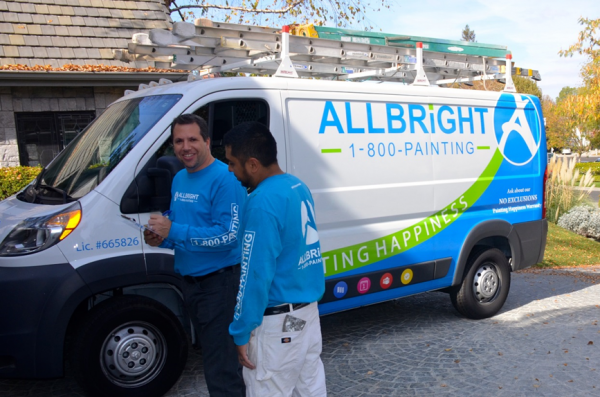
The Smoke and Mirror Tricks
Painters with bad reputations can avoid the problem of reference checks by giving their customers lists of relatives and friends. The people will say great things, and the customer won’t be the wiser. The best way to avoid this smoke and mirror trick is to ask specific questions about the project. If the reference seems hesitant, doesn’t know the details, or gives sketchy responses, be skeptical.
Feared Question #10 – “How Long Is Your Warranty, What Does It Cover, And How Is It Funded?”
If you hire a contractor for a painting job, you’ll want some assurances in the form of guarantees or warranties. Knowing the importance of warranties, some companies even give unrealistically long warranties such as 10 years, 20 years, or even lifetime warranties. The sad fact is that most of these companies will be out of business long before their warranties expire. So what is a realistic warranty that you can trust? Here’s what you should look for in a great warranty:
- 1-year warranties are common and okay, provided that the work is well done. Most paint failures will show signs within the first year anyway. 2-3 year warranties are also common. Anything above that and you should look closely at the fine print.
- A decent warranty by the contractor will provide both labor and material for a covered defect.
- Paint manufacturers may provide longer warranties on their products, but these only cover replacement of the material.
- Most warranties will have exclusions, so it is important to find out exactly what the contractor’s warranty does and doesn’t cover.
- Warranties should always be in writing and available for your review.
The question, “how is your warranty program funded?” will probably get you some puzzled responses. The fact is, most contractors have never even considered how to pay the expenses associated with warranty callbacks, and some contractors just seem to vanish when they get a warranty call. A professional contractor will be preparing for callbacks (they will happen, even to the best contractors) by including a line item in their budget for warranty work. Ask the question and see what kind of response you get. Sometimes, how the question is answered is more important than the answer itself!
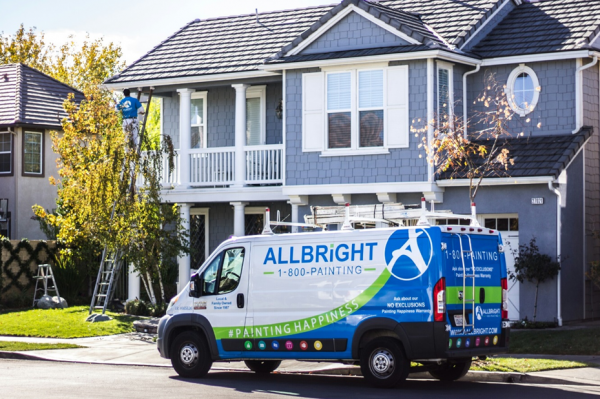
The Smoke and Mirror Tricks
The biggest trick of sneaky contractors is to provide an unrealistically long warranty usually coupled with the “deal of the century.” Other contractors may avoid warranties by not giving you a written copy of the warranty conditions or just adding a line or two in a contractor’s proposal. Make sure to always get your full warranty in writing.
Can Your Painting Contractor Answer These Questions?
These days, it seems like anyone with a paintbrush and a business card can call themselves a painting contractor. Homeowners who are most likely to be taken in by these unscrupulous “painters” are those who are focused on cost and cost alone. With painting, like anything else in life, you typically get what you pay for. If the painting contractor you are considering cannot answer these ten questions, proceed at your own risk. If they answer all ten satisfactorily, then you know you’ve found a great professional contractor to work with.
